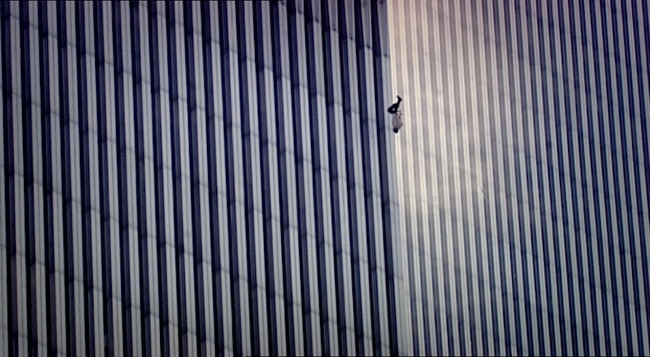Feeling the ripple effect of 9/11
As the 20th anniversary of 9/11 approaches, SBS and the ABC have assembled a bracing collection of films exploring the long-term impact on a generation.

As the world approaches the 20th anniversary of the September 11 attacks on the World Trade Center in lower Manhattan and the Pentagon in northern Virginia, SBS and the ABC have assembled a bracing collection of films exploring not only different facets of that tragic day, but the ripple effects it has had on a new generation of young people directly affected by the fateful chain of events – who currently find their lives bracketed by broad-ranging crises.
“I grew up being a nine-eleven kid,” 19-year-old Ronald Milam Jr. says in the new two-part series Generation 9/11. Many did, of course, but Milam is one of an estimated 105 children born to mothers whose husbands perished during, and as a direct result of, the attacks, and so never met their fathers. That’s not to say they don’t know them, however, as the seven profiled here speak frankly and movingly about the memories saved and milestones missed thus far in their young lives. Says 19-year-old Nick Gorki, whose parents were in one of the towers and whose mother left the building shortly before the first plane hit due to the morning sickness she suffered while carrying him, “I saw a meme last night, ‘I’m so tired of living through global historic events’.”
The picture above, one of a dozen snapped in sequence by Associated Press photographer Richard Drew of an unidentified man plummeting from the upper reaches of the North Tower of the World Trade Center at 9:41am that Tuesday, was so controversial it was virtually erased from collective memory after running in newspapers and magazines around the world. After pondering who he was and whether he jumped or fell, freelance writer Tom Junod persuaded his editor to commission a piece. Almost five years later, a 70-minute documentary, 9/11: The Falling Man, charts the writer’s trail to discovery and the deep moral question the journey raises: “What do we stand to gain from ID’ing this person?,” an interviewee asks the camera, and the film invites viewers to decide for themselves.
The newest film of these four, the feature-length documentary 9/11: Life Under Attack, takes a distinctly more granular approach to the logical supposition that the tragedy was the most filmed and documented event in history. Director Karen Edwards and editors Bruce Law, David Pearson and Dom Bailey have assembled footage taken by various New Yorkers and a vacationing California family into a highly personal and propulsive account of the day.
As the planes hit, American president George W. Bush was listening to 16 six- and seven-year-old African American and Latino children read from the book The Pet Goat at a school in Sarasota, Florida. How those young people are moving forward from that is the subject of the feature-length documentary 9/11 Kids.
“When you look at faces like that,” someone says of the young lives that were about to change, “you can’t help but smile. In those smiles is
potential.”
And in these films, the glimpse of a fraught past and hopeful future.
Generation 9/11: Sunday, 9.10pm, SBS and SBS On Demand; 9/11: The Falling Man, Monday, 7.30pm, SBS and SBS On Demand; 9/11: Life Under Attack, Thursday, 9.30pm, ABC and ABC iview; 9/11: Kids, Thursday, 9.30pm, SBS and SBS On Demand.



To join the conversation, please log in. Don't have an account? Register
Join the conversation, you are commenting as Logout